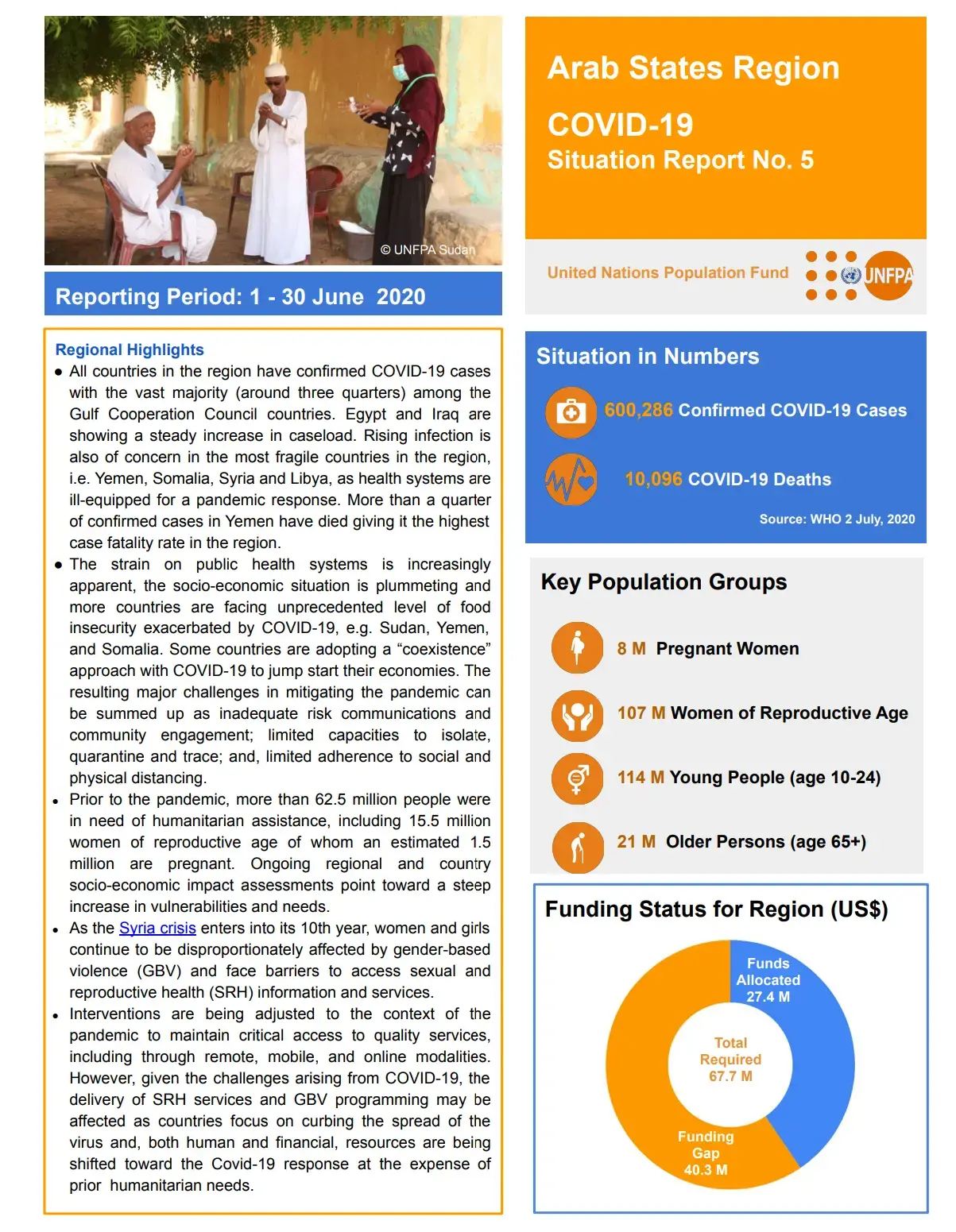Regional Highlights
- All countries in the region have confirmed COVID-19 cases with the vast majority (around three quarters) among the Gulf Cooperation Council countries. Egypt and Iraq are showing a steady increase in caseload. Rising infection is also of concern in the most fragile countries in the region, i.e. Yemen, Somalia, Syria and Libya, as health systems are ill-equipped for a pandemic response. More than a quarter of confirmed cases in Yemen have died giving it the highest case fatality rate in the region.
- The strain on public health systems is increasingly apparent, the socio-economic situation is plummeting and more countries are facing unprecedented level of food insecurity exacerbated by COVID-19, e.g. Sudan, Yemen, and Somalia. Some countries are adopting a “coexistence” approach with COVID-19 to jump start their economies. The resulting major challenges in mitigating the pandemic can be summed up as inadequate risk communications and community engagement; limited capacities to isolate, quarantine and trace; and, limited adherence to social and physical distancing.
- Prior to the pandemic, more than 62.5 million people were in need of humanitarian assistance, including 15.5 million women of reproductive age of whom an estimated 1.5 million are pregnant. Ongoing regional and country socio-economic impact assessments point toward a steep increase in vulnerabilities and needs.
- As the Syria crisis enters into its 10th year, women and girls continue to be disproportionately affected by gender-based violence (GBV) and face barriers to access sexual and reproductive health (SRH) information and services.
- Interventions are being adjusted to the context of the pandemic to maintain critical access to quality services, including through remote, mobile, and online modalities. However, given the challenges arising from COVID-19, the delivery of SRH services and GBV programming may be affected as countries focus on curbing the spread of the virus and, both human and financial, resources are being shifted toward the Covid-19 response at the expense of prior humanitarian needs.


